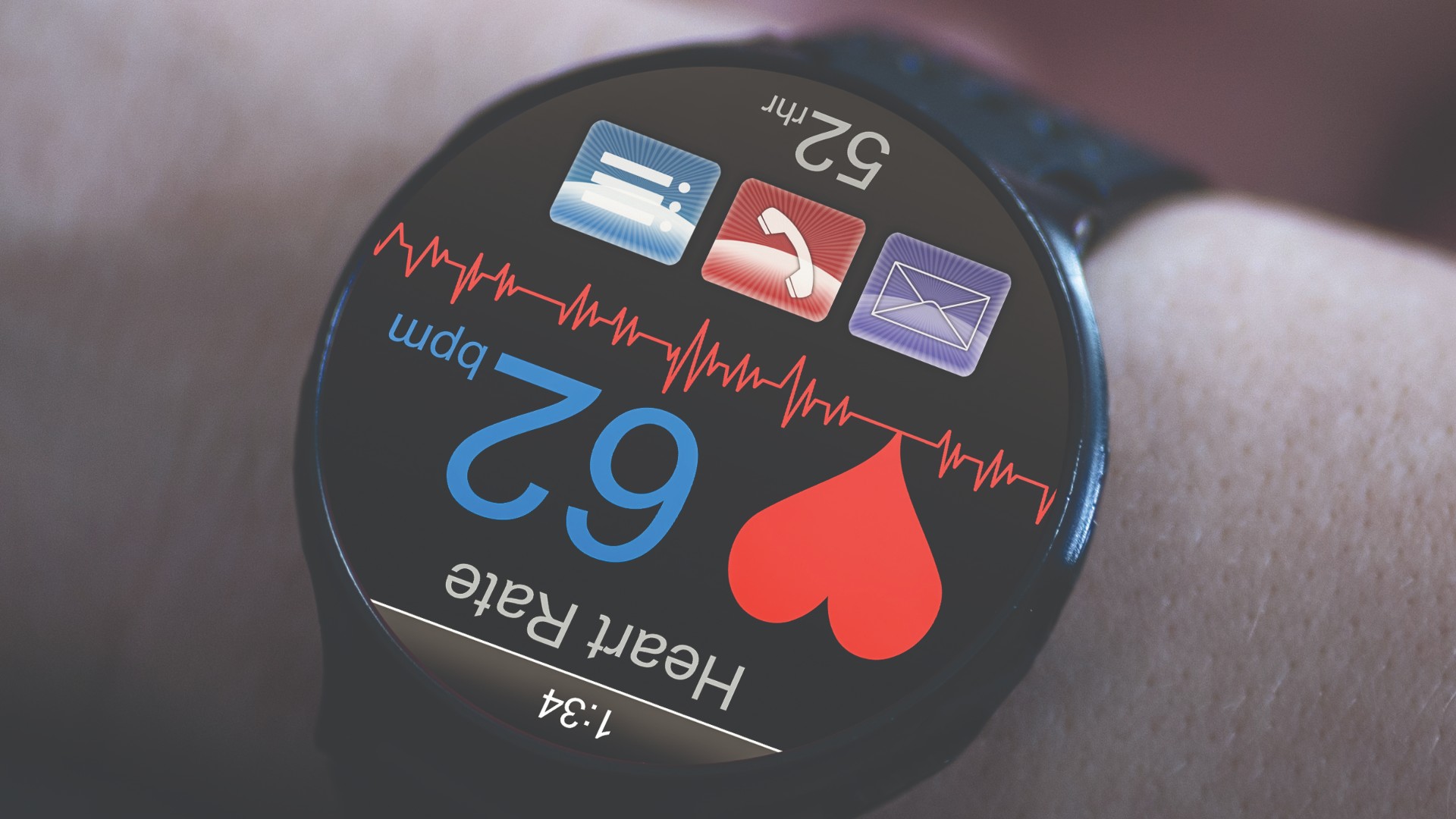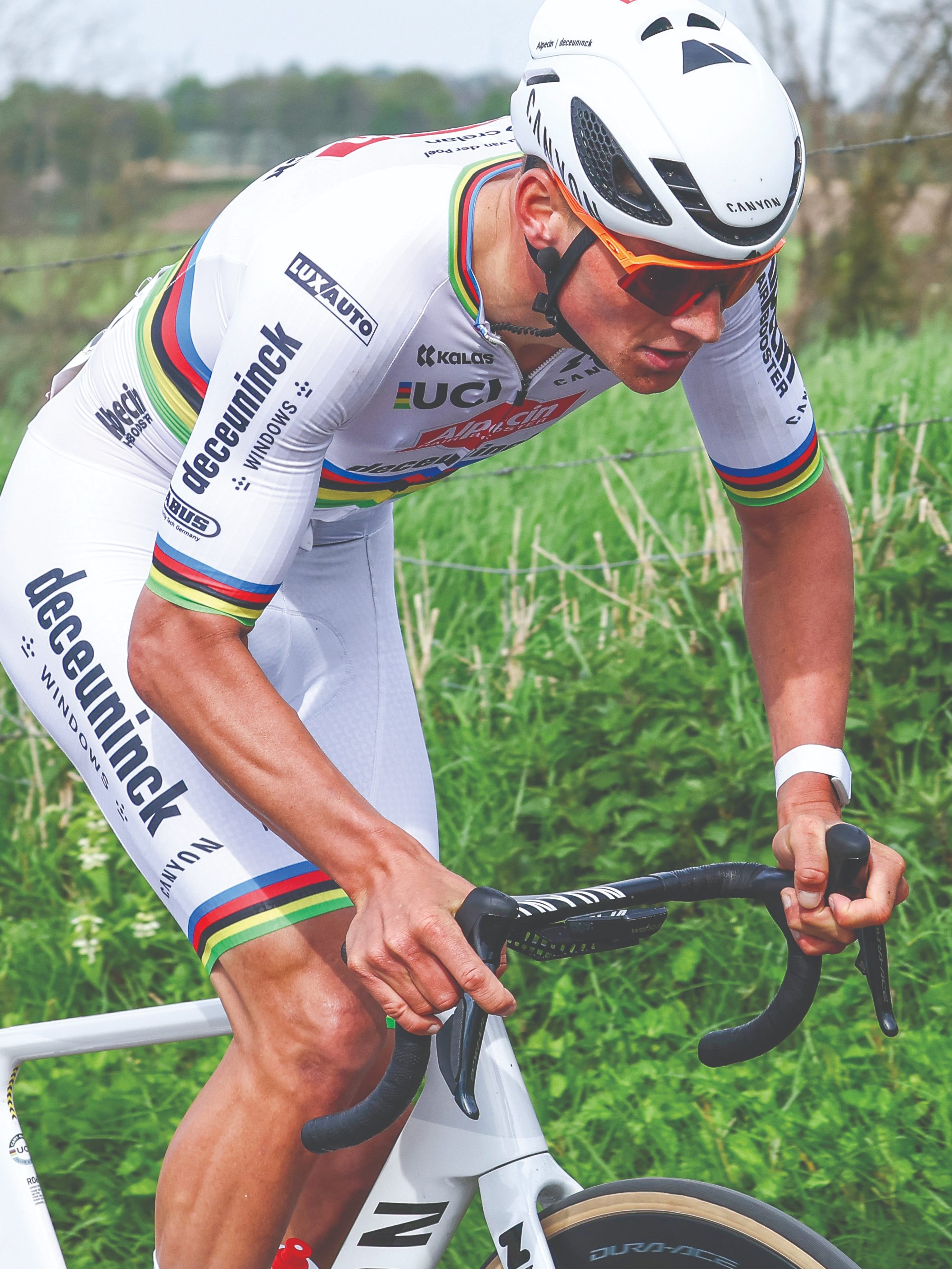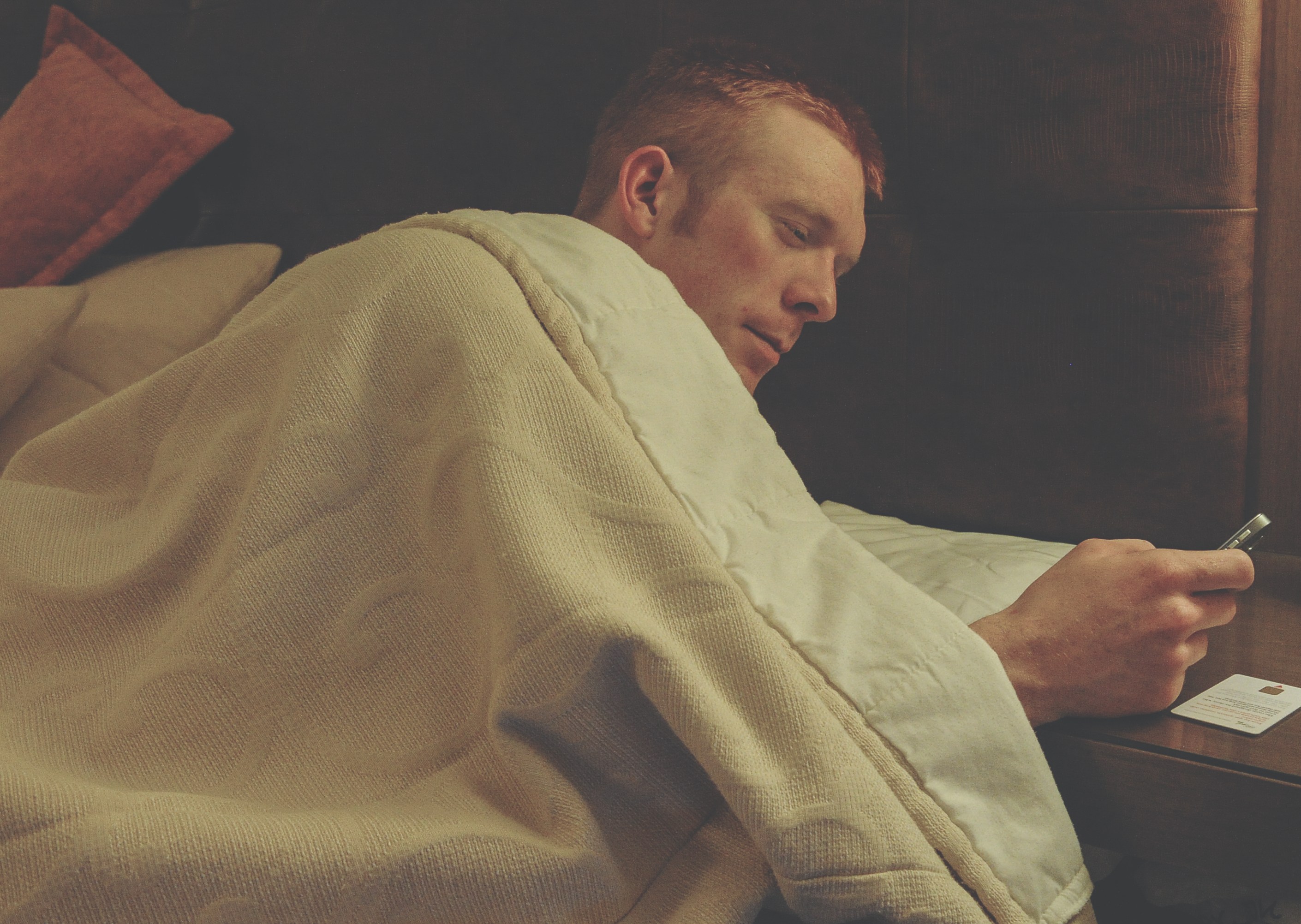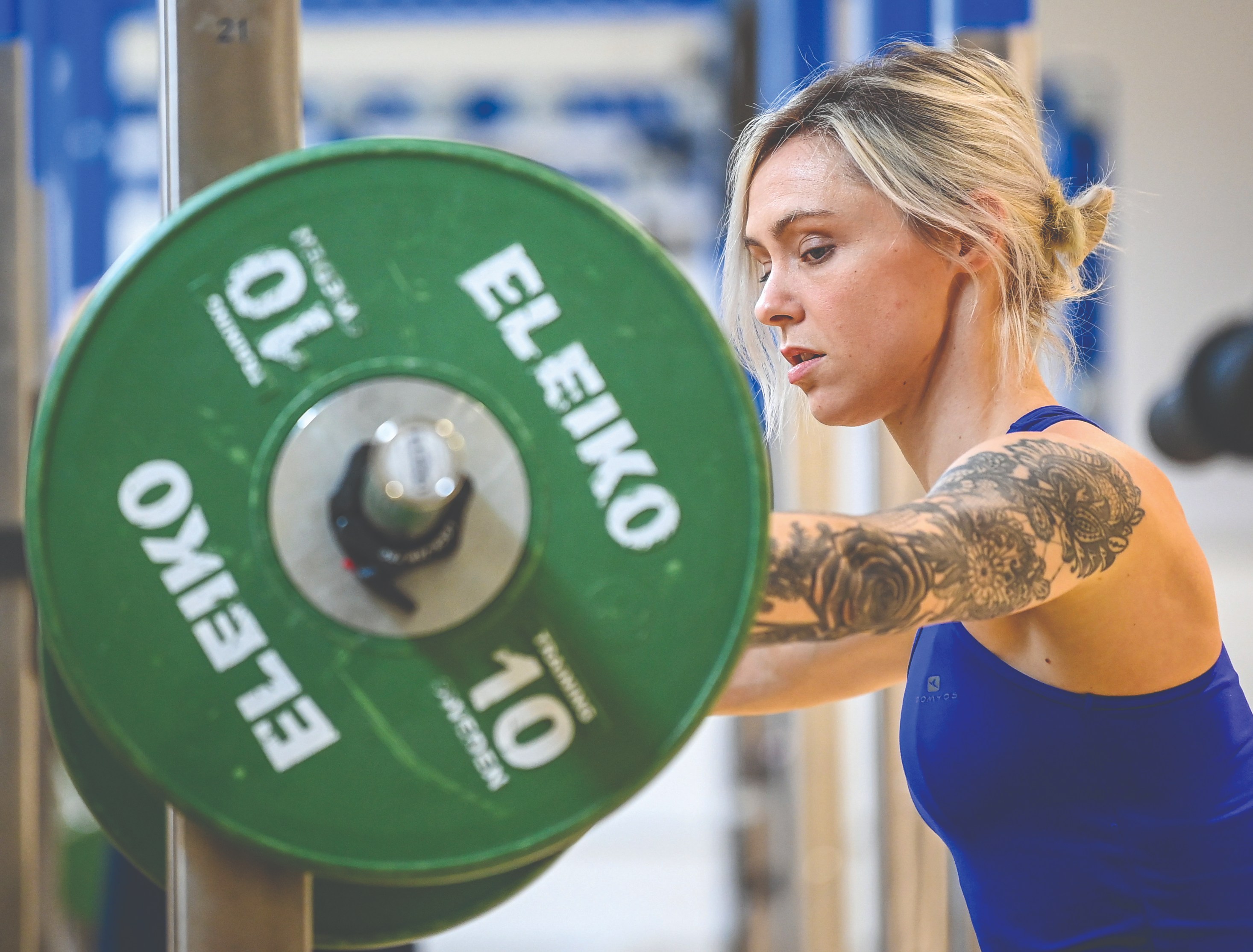Is tracking sleep time well spent?
Are cyclists sleepwalking into information overload, asks Lexie Williamson

The latest race content, interviews, features, reviews and expert buying guides, direct to your inbox!
You are now subscribed
Your newsletter sign-up was successful
As a keen cyclist and occasional insomniac, I’ve got into the habit of delving straight into my sleep data as soon as I wake up. Take this morning: in a few seconds, data from my Garmin watch downloaded onto my phone showing eight hours, 32 minutes of sleep, of which 39 minutes were ‘deep’, five minutes were ‘light’ and two hours 38 minutes were REM. I flicked down to my ‘sleep score’ – a rating of sleep on a scale of zero to 100 – to see a score of 82 (‘good’), indicating that I was adequately rested for the hard interval turbo session I had planned for later. Obsessing over this data is a hard habit to break.
I’m not alone. As cyclists we’re accustomed to arriving home, unclipping, and scrutinising our ride data. An increasing number of us are also monitoring what happens when we’re tucked up in bed, using wearables that record our sleep and other recovery data such as heart rate (HR) and heart rate variability (HRV), the variance in time between heartbeats. The aim is to gather not only data on how hard you are pushing on the bike, but also how well your body is recovering afterwards – helping to guide your workload for the next day.

The pros are tracking their sleep, but do we need to?
The brands behind the trackers are keen to forge a connection with the cycling community. Whoop sponsors the EF Education-EasyPost team and world champion Matheiu van der Poel, while Ultrahuman makes the Air ring worn by Tadej Pogačar and his fellow UAE Team Emirates riders. At the upcoming Tour de France, EF will also use the Eight Sleep Pod, a cooling mattress topper, placed on riders’ beds to lower body temperature and collect sleep data.
While sleep data may be useful for micromanaging the health of pro riders, can it help normal riders like you and me? The trackers claim to measure the quality of sleep, quantify ‘readiness’ to ride and alert us to possible illness, but are they accurate? What’s more, could it be a case of too much information adding to mental pressures and actually making it harder to sleep? To find out, I decided to test a Whoop band and Ultrahuman’s Air ring.
Before we get to the testing, let’s explore how these wearables work. Sleep is characterised by a range of physiological changes in brain activity, heart rate, blood pressure, body temperature, respiration, eye movement and muscle tone. Measuring sleep in the gold standard polysomnographic (PSG) laboratory test, a team of professionals use a montage of electrodes to capture these changes. Wearables, meanwhile, pick up some of these changes, such as HR and HRV by shining a light through the skin to detect blood flow changes. They detect temperature and also movement through the use of accelerometers, though the latter measurement can be unreliable, as some people thrash around in their sleep while others lie motionlessly awake.
The four phases of sleep
Let’s dive briefly into the science of sleep. Each sleep stage totals 90 minutes and comprises four phases: two light, one REM and one deep. The two restorative phases are REM and deep because this is where the repair work is done. In deep sleep, blood pressure and heart rate drop, muscles are repaired and hormones such as human growth hormone are released, building muscle, burning fat and stimulating tissue growth – key for physical recovery.
The majority of your daily human growth hormone (HGH) is secreted between 11pm-1am so it’s important to get your full complement of sleep. Cognitive repair happens in the REM phase; this is when memory consolidation, emotional processing, brain development and dreaming occurs.
Most of us need to sleep through five 90-minute cycles, which takes 7.5 hours, or six cycles which equates to nine hours. The more cycles you can tick off, the perkier you’ll feel.
The consensus among sleep experts is that wearables are reasonably accurate in determining whether someone is awake or asleep. They are much less effective, though, in measuring the time spent in different sleep stages. As cyclists we want to know about these stages because we know that the body repairs itself in the ‘deep’ phase of each sleep cycle. During this type of sleep, muscle is mended and human growth hormone (HGH) secreted, helping burn fat and stimulate tissue growth. The REM phase, meanwhile, restores us mentally. During REM, learning and memories are consolidated and levels of noradrenaline, a trigger for stress and emotions, are decreased.
“Not all contemporary sleep measurement technologies are valid or reliable,” explains Sarah Gilchrist, who has a doctorate in sleep and athletic performance. In Gilchrist’s view, cyclists should avoid getting “caught up” with gathering sleep data and instead simply be attuned to whether they feel “alert, refreshed and productive” during the day – and if not, get into a routine of going to bed earlier. Simple.
The latest race content, interviews, features, reviews and expert buying guides, direct to your inbox!
The research supports Gilchrist’s doubts about the accuracy with which trackers measure sleep stages. A 2023 study evaluated four commercial sleep-tracking devices – Fitbit, Garmin Vivosmart 4, Oura Ring, and Withings Mat – comparing them with research- grade actigraphy (a wristwatch-like device used to monitor motion) and polysomnography. Scientists monitored 53 young adults in the lab for one night. Every device, apart from the Garmin Vivosmart, was deemed “able to estimate total sleep time comparably to research- grade actigraphy” and were “reliable and convenient” in comparison with lab sleep tests. In other words, most of the wearables did a good job in detecting and measuring sleep quantity, which is useful information, since it’s easy to conflate time in bed with time spent asleep. All of us should be getting seven to nine hours per night – and even longer if you’ve had a very long day in the saddle. The devices did much less well in measuring the different phases of sleep.
The study observed that “discerning light sleep from deep sleep was especially challenging for sleep- tracking devices”, while acknowledging that newer models are evolving. “Only 5% of consumer sleep- tracking technologies have been formally evaluated,” noted the conclusion, and called for “further improvements to reliability and accuracy.” Th ere is also a lack of transparency in how the devices work, with their patented, secret algorithms producing ‘scores’ that scientists are unable to properly interrogate. A consensus statement from an expert panel of sleep researchers in 2020 claimed that there was insuffi cient evidence to support sleep staging in wearable devices and expressed concern about the psychological impact on athletes of observing poor sleep scores, especially prior to races.
Put to the test

Pros have always known the importance of a good night’s sleep
It was time to find out for myself. I tested a Whoop band and an Ultrahuman’s Air ring, one at a time, wearing each device for a week to find out if they could help improve my sleep and recovery. I kept on my Garmin watch during both tests, to provide comparative data. Starting with the Whoop, I noted that the band is screen-less, allowing you to forget that you’re wearing it while the data downloads onto an app. Whoop focuses on three concepts: sleep, recovery and strain. Th e sleep data is much more detailed than that provided by my Garmin watch. It told me how much sleep I’d had, not only ‘time in bed’ – illuminating because I consistently underestimated the time I spent sleeping.
Tech free sleep hacks
Breakfast in the garden: Getting some direct natural light when you first wake up stimulates the release of hormones such as serotonin. Our circadian rhythm is attuned to the light-dark cycle, meaning we need lots of light early on, less in the evening and zero during the night by sleeping in a very dark bedroom.
Take a nap: Napping for 20-30 minutes really does work. If you’re training hard but struggling to sleep more than seven hours (the minimum amount for athletes), a nap supplements nocturnal sleeping.
Mix it up: Aim for seven to nine hours of sleep a night. If this proves tricky, set aside an hour for ‘recovery’ in the day – this might include a nap, a simple breathing exercise or even just putting your feet up for 10 minutes. Don’t get hung up on achieving a set number of hours for your main nocturnal sleep
Get it done early: Don’t train too late in the day, as your adrenaline and cortisol levels will still be sky high at bedtime. Aim to finish your session at least two hours before bedtime.
Digest before rest: Eat dinner at least two hours before bedtime to give your body time to digest, and resist that glass of wine. Even moderate alcohol intake can interfere with sleep.
Ditch afternoon coffee: We love our coffee but forgo the late afternoon brew. Caffeine makes us feel alert by blocking the receptors of adenosine which builds up during the day creating a mounting feeling of sleepiness.
Get some air: Open a window to ensure your room is cool (ideally no warmer than 18°C).
Whoop also broke down, in percentages, the proportions of deep and REM sleep – the restorative types – producing numbers very different to my Garmin watch, which left me puzzling over which might be the more accurate. Th e Garmin and Whoop devices also disagreed on sleep duration: Garmin said seven hours 13 minutes on average, while Whoop recorded only six hours 47 minutes. I also kept an eye on my HRV in the Whoop app, which one morning had dropped from 67 to 40, and sure enough, later in the day I started to feel unwell. Though HRV monitoring proved useful this time, I’d be wary about over-analysing a score that can change for less easily interpretable reasons.
The final metric of the Whoop app is called strain. This measures your workouts and feeds back to the sleep and recovery sections the corresponding hours of sleep required, as well prescribing activity levels for the following day. My band recommended 9.5 hours of sleep after a 107km ride with 1,007m of climbing. The Whoop device is free but you pay a monthly (£27) or annual (£229) subscription. The Whoop data was clear and easy to monitor but I’d be reluctant to pay the monthly subscription, given the number of devices available that offer sleep data without a recurring fee.
Ultrahuman posted a ring-sizer kit and I downloaded the app and chose my size and colour. The concept is similar to Whoop: the Air ring records HR and HRV and monitors sleep. After wearing the ring for a night, I downloaded a ‘sleep index’ score, with a breakdown of factors including time, body temperature, restfulness (absence of tossing and turning) and efficiency (time it takes you to fall and stay asleep). Just like the Whoop band, the Air ring recorded 20-30 minutes less sleep than my Garmin watch – so it seems likely the Garmin is erring on the generous side.
Unexpectedly, the Air ring recorded a much lower HRV number than the Whoop band had, perhaps explained by reduced sleep quality, but this big difference continued even when I got a good night’s sleep. My HRV was quite high on Whoop (mid to high 60s) but averaged 44 on the Air ring app. The latter app made suggestions based on my circadian rhythm, suggesting the time of day to get sunlight, and prompted me to move when I spent too long at my desk. It also provided advice on how to reduce stress, in the form of yoga videos and breathwork audio sessions, and ‘sleep stories’ similar to those offered by apps such as Headspace and Calm. Unlike Whoop, the Air ring did not provide guidance on my workouts’ implications for my recovery. The Air ring costs £329 as a one-off outlay.
Orla Walsh: "My wearable warned me I was ill"

Track cyclist Orla Walsh, an 11-time Irish national champion, has been wearing a Whoop band since 2019 to monitor sleep and recovery.
Taking note of her sleep scores, Walsh believes they are accurate and adapts or swaps training sessions accordingly. When this isn’t possible, she does her best to overcome fatigue through hydration and fuelling. That said, the 25-year-old isn’t always convinced by the data.
“The recovery score may say that I’m in the green when neurologically I feel very fatigued as a sprinter,” she explains. “I think it’s difficult for heart rate data to calculate the effort involved in sprinting or weightlifting when there is little cardio involved."
Using the app’s diary tool, Walsh noticed that her caff eine consumption was aff ecting her sleep and so cut coffee from her diet. She also uses the Whoop to monitor for signs of illness. One morning in 2021 she woke symptomless and was heading to the gym when she noticed on her Whoop a dramatic increase in her respiratory rate from her usual 15.8rpm to 17.9rpm, while her average heart rate was up nearly 10bpm and her heart rate variability had dropped from 57 to 40. Acting on the warning signs, she skipped the gym and booked a Covid test, which came back positive.
Illuminating lessons
So, having researched and tested two leading sleep trackers, would I commit to wearing one over the long term? Th e short answer is no, but I learnt two key lessons from the experience. Firstly, I sleep less than I thought, by at least an hour a night. Secondly, behaviours that negatively impacted upon my sleep were eff ectively fl agged up. For example, after filling in Whoop’s journal section of the app, I realised that my mid-afternoon coffee was likely harming my sleep. This supports Gilchrist’s opinion that sleep trackers can be useful for “monitoring a change in sleep quantity, essentially by supporting a behavioural change”.
Did a poor sleep score convince me not to ride? No, not if the sun was shining. That said, on days with good sleep scores, I did feel more confident to push harder and suffer more. Personally, I found the amount of data a bit overwhelming, and being told you’ve slept badly when you already have anxieties around sleep is at best unhelpful. If you suffer from insomnia, seek out other interventions. Gilchrist recommends the Epworth Sleepiness Scale, designed to identify causal behaviours. Provided you sleep well and have the time to analyse the numbers, a sleep tracker may prove beneficial, or at least interesting, illuminating what goes on during the dark hours of night.
Fitness instructor Lexie Williamson specializes in yoga for runners and cyclists and is the author of Yoga for Cyclists ($28 / £20, Bloomsbury Publishing).